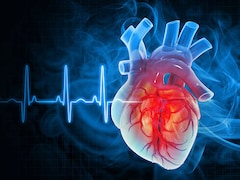Postpartum Recovery: In this article, we'll explore how women can maintain fitness after childbirth, the best exercises, and nutritional tips to support health and recovery.

Tips to maintain fitness post childbirth
The postpartum period, often called the “fourth trimester,” is a transformative phase for women. It brings significant physiological changes, including hormonal shifts, weight fluctuations, and physical recovery from childbirth. While these changes are natural, they can affect energy levels, mental health, and overall well-being. Postpartum fitness plays a vital role in maternal care, aiding recovery, improving mood, and helping mothers regain strength. However, fitness during this stage requires caution, understanding, and a gradual approach tailored to the individual's recovery journey. In this article, we'll explore how women can maintain fitness after childbirth, the best exercises, and nutritional tips to support health and recovery.
How women can maintain fitness post childbirth
Postpartum fitness should prioritise both physical recovery and mental health. It's important for women to consult their healthcare provider before starting any fitness routine to ensure their body is ready. For vaginal deliveries, light activities can often begin within a few weeks, while recovery from a cesarean section may take longer.
Gradual progression is key. Start with gentle exercises, such as walking or breathing exercises, to build stamina. Combine this with a nutritious diet to meet the body's increased nutrient demands during breastfeeding. Over time, women can incorporate strength training, pelvic floor exercises, and moderate aerobic activities for comprehensive fitness benefits.
Exercises and nutritional tips to maintain fitness postpartum
1. Walking for low-impact fitness
Walking is a gentle, accessible exercise that helps improve circulation, burn calories, and boost mood. Start with short strolls and gradually increase duration.
2. Pelvic floor exercises (Kegels)
Childbirth can weaken pelvic floor muscles. Strengthening them through Kegel exercises helps prevent incontinence and supports the lower back.
3. Postpartum yoga
Yoga combines gentle stretching with mindfulness, easing tension, improving flexibility, and promoting mental well-being. Focus on poses like child's pose and cat-cow stretches.
4. Core-strengthening exercises
Diastasis recti, the separation of abdominal muscles, is common post-pregnancy. Core exercises such as pelvic tilts and modified planks can help strengthen the abdominal area.
5. Strength training with light weights
Incorporate light dumbbells or resistance bands to rebuild muscle strength and tone arms and legs. Ensure proper form to avoid strain.
6. Hydration and healthy snacks
Breastfeeding and postpartum recovery require extra hydration. Include water-rich foods and balanced snacks like nuts, fruits, and whole grains to maintain energy.
7. Iron and calcium-rich foods
Consume iron-rich foods like leafy greens and lentils to combat postpartum fatigue and calcium-rich options like dairy or fortified plant-based milk for bone health.
8. Gradual introduction of cardio
Low-impact cardio, like cycling or swimming, can be introduced after six weeks, boosting heart health and aiding weight loss.
9. Postpartum-specific fitness programs
Consider enrolling in fitness classes designed for new mothers. These programs are tailored to address postpartum needs safely.
The postpartum period is a critical time for recovery and adjustment, and families play an essential role in supporting mothers during this phase. By sharing responsibilities, fostering a stress-free environment, and encouraging safe fitness practices, families can help mothers maintain their health and prevent complications. Motherhood requires a balance of care, precaution, and gradual reintroduction to physical activity to ensure long-term well-being. With the right approach and support, postpartum fitness can become an empowering journey toward a healthier, happier life.
Disclaimer: This content including advice provides generic information only. It is in no way a substitute for a qualified medical opinion. Always consult a specialist or your own doctor for more information. NDTV does not claim responsibility for this information.
DoctorNDTV is the one stop site for all your health needs providing the most credible health information, health news and tips with expert advice on healthy living, diet plans, informative videos etc. You can get the most relevant and accurate info you need about health problems like diabetes, cancer, pregnancy, HIV and AIDS, weight loss and many other lifestyle diseases. We have a panel of over 350 experts who help us develop content by giving their valuable inputs and bringing to us the latest in the world of healthcare.














